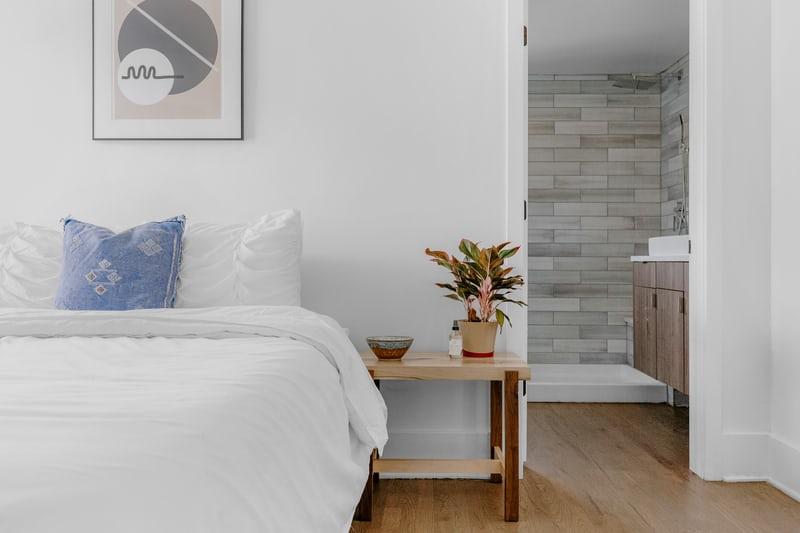According to the CDC, the average adult needs at least 7 hours of sleep a night. They also reported: “Adults who were short sleepers (less than 7 hours of sleep per 24-hour period) were more likely to report being obese, physically inactive, and current smokers compared to people who got enough sleep (7 or more hours per 24-hour period).” On top of that, there are some serious risk factors if you do not get enough sleep every night. According to Healthline, if you do not get enough long-term sleep it can lead to: memory issues, anxiety, depression, risk of heart disease, poor balance, and more. So what can we do to get a full and good night’s sleep?
1. Create a Ritual
The Sleep Doctor recommends you to create a daily sleep ritual where you go to bed at the same time, every day. Obviously life happens or you go out for a night out; however, Dr. Michael Breus is very serious about creating a ritual. You would customize it and change it to fit your needs but this is a perfect way to start your own ritual. Here is a sample one below from his website:
Bedtime: 10:00pm
8:30pm – Turn off screens or put on blue light blocking glasses
8:30pm – 9:00pm – Conversations with the people in your home
9:00pm-9:15pm – Sip a cup of Banana Tea – Here’s what you’ll need: 1 normal sized ripe banana, 2 cups boiling water. Cut off ¼ inch of top and bottom ends of the banana. Leave the peel on and cut the banana in half, horizontally. Place two banana halves into boiling water and boil for 10 minutes. Strain banana water into a cup. Add a drop of raw honey (my favorite) or cinnamon if desired.
9:15pm-9:25pm – Journaling or list making – The Five Minute Journal is great and has the benefit of giving you a quick morning routine as well. This particular journal also gives you journaling prompts that make journaling easy. If you choose not to journal, then list the things that are running around in your head, just write them down so they have a place to rest while you do.
9:25pm – 9:40pm – Personal hygiene
9:40pm-9:50pm – Meditation or rhythmic breathing.
9:50pm-10:00pm – Put on a sleeping mask, ear plugs, or any other sleep devices you may need, get into bed and go to sleep.
2. 15 Minutes of Reading
Whether it is a magazine, book, self help book, religious book, etc make sure you are reading in print and not on your phone. Business Insider published an article about the benefits of reading before bed and said: “Cracking open a book before you go to bed could help combat insomnia, too: A 2009 study from researchers at University of Sussex showed that six minutes of reading reduces stress by 68% (more relaxing than either music or a cup of tea), thus clearing the mind and readying the body for sleep.”
3. Workout During the Day
Workouts can consist of yoga, cardio, aerobics, swimming and more which gives you unlimited options to move your body to improve your sleep! 30 minutes a day can make a huge change on your sleep quality. John Hopkins Medicine wrote a piece about the correlation between working out and quality of sleep and stated: ““We have solid evidence that exercise does, in fact, help you fall asleep more quickly and improves sleep quality,” says Charlene Gamaldo, M.D., at Johns Hopkins Center for Sleep at Howard County General Hospital.”
Everyone is Different!
I hope one of these three tips will help you when you are trying to sleep. If you would like to learn some other ways to get a full night’s rest, check out this article about sleep and essential oils. What helps you sleep? Let us know!



